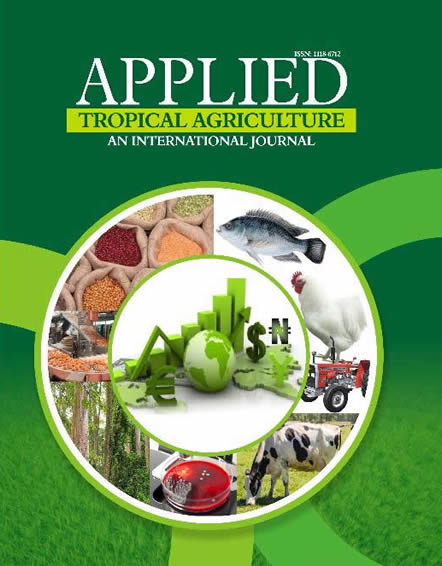African traditional soups are rich in nutrients, but their preservation by reheating after use and frozen storage reduce
their nutrient qualities. Freeze drying perfectly retains food nutrients and sensory properties, but literature is sparse
on its application to Nigerian soups preservation. Soups (Ila, Ewedu, Ogbono and Kuka) were prepared using
standard recipes, freeze-dried, packaged in polyvinylchloride and stored at ambient condition for 8 weeks. Moisture,
free fatty acid (FFA), peroxide value (PV), pH value, titratable acidity (TTA), viscosity, microbial counts and sensory
attributes of the samples were determined at 14 days interval using standard methods. The Moisture, FFA, PV, pH,
TTA and viscosity of the soups ranged from 6.33% to7.57%, 0.66 % to 1.93%, 5.94 % to 8.69%, 6.87 % to 7.10 %, 0.07
to 0.31 and 0.88 to 1.98Pa.s respectively. The ambient storage period had significant influence on the sensory
attributes and stability indices of the freeze-dried soups. Freeze-drying reduced soups moisture contents by 90.0-
90.8% and a profound increase was not noticed during storage. Bacterial counts of freeze-dried soups ranged from
0.0 cfu/g-5.3 cfu/g. Freeze drying drastically reduced their initial microbial loads and limited their proliferation
during storage. Freeze dried soups stability cannot be guaranteed after two months storage, because of continuous
increase in the PV and FFA values, which affect soup tastes and overall acceptability.
Keywords: Soups, Freeze drying, Preservation, Nutrients quality, Shelf stability
PAPER TITLE :SENSORY PROPERTIES AND STABILITY OF SELECTED FREEZE DRIED NIGERIAN SOUPS STORED AT AMBIENT CONDITION
APPLIED TROPICAL AGRICULTURE | VOLUME 24 NUMBER 1 2019
Paper Details
- Author(s) : Raji Akeem Olayemi1, Akinoso Rahman2, Sani Maimuna 1 and Raji Monsurat Oyewale2
- Abstract:


